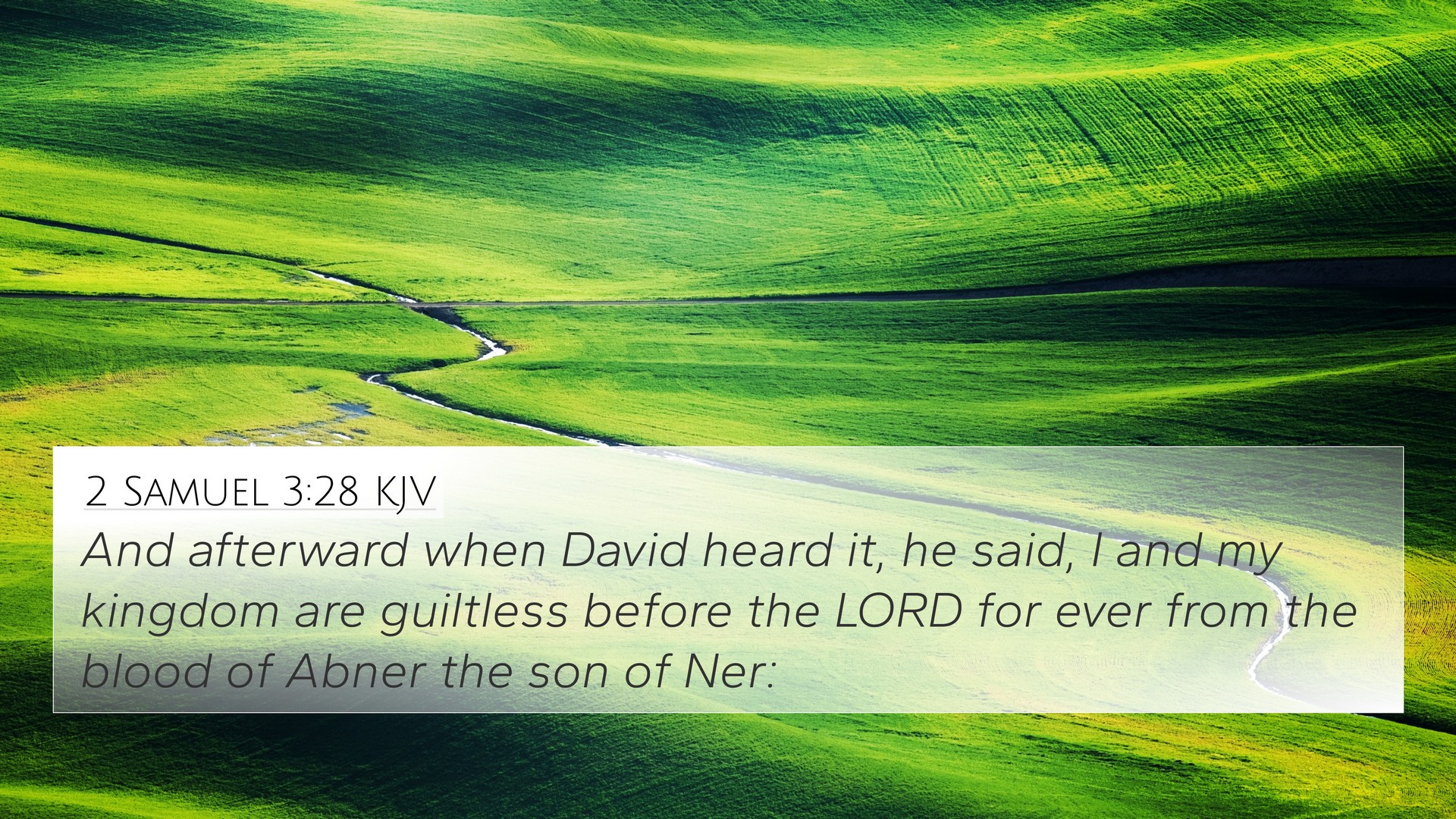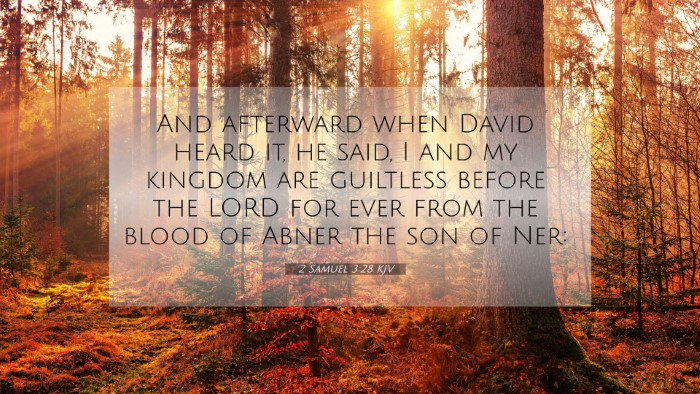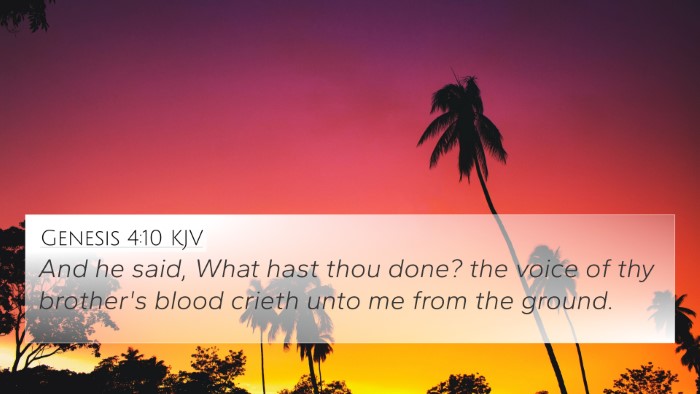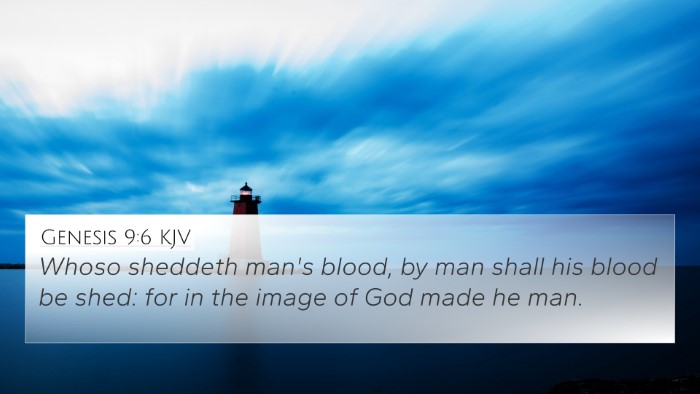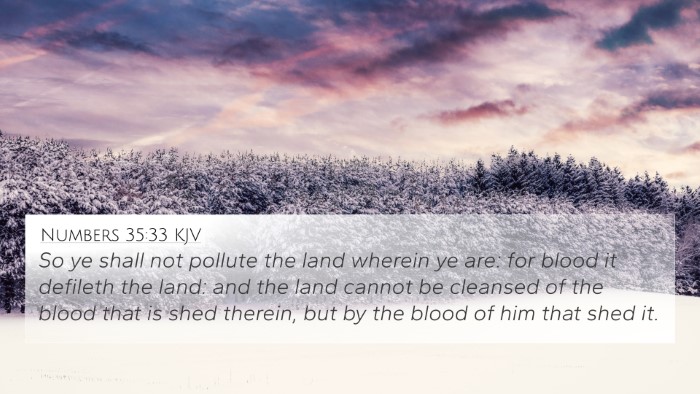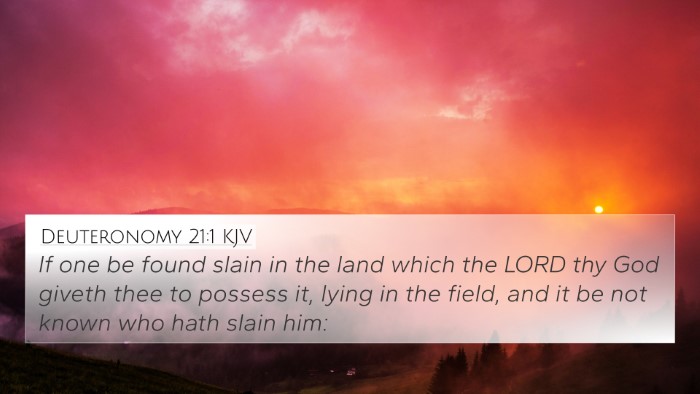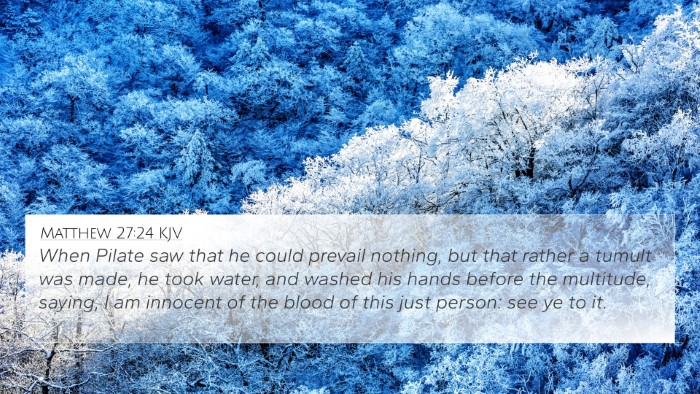Understanding 2 Samuel 3:28
2 Samuel 3:28 states, "And afterward when David heard it, he said,
'I and my kingdom are guiltless before the Lord forever of the blood of Abner the son of Ner.'"
This verse highlights King David's declaration of innocence regarding the murder of Abner, showing a clear distinction between his actions and the treachery of Joab.
This moment reflects both the political and moral complexities of David's rule.
Commentary Insights
-
Matthew Henry:
Henry emphasizes David's integrity and the weight of his kingship.
He remarks that David distances himself from the act, underlining the importance of accountability in leadership.
Henry notes that David’s grief over Abner’s death illustrates his commitment to justice and peace in Israel.
-
Albert Barnes:
Barnes expands on David's reaction, pinpointing his awareness of the political implications of Abner's death.
He suggests that David seeks to affirm that he had no part in this act of violence, reinforcing his position as a righteous leader.
This statement serves to unify the nation under his reign while distancing himself from Joab's actions.
-
Adam Clarke:
Clarke comments on the personal and national ramifications of Abner's murder.
David’s proclamation serves as a protective measure for his kingdom, emphasizing that the blame lies entirely with Joab.
Clarke’s analysis points to a significant theme of leadership responsibilities and the need for clear moral discernment.
Bible Cross-References
- 1 Chronicles 11:39: Relates to David's mighty men and their loyalty.
- 2 Samuel 2:30: Discusses Joab's role and his violent actions.
- 2 Samuel 2:32: Describes the aftermath of Abner’s death.
- Romans 13:1: Informs about the authority and responsibility of leaders.
- Proverbs 16:12: Highlights the importance of righteousness in ruling.
- Matthew 5:25: Discusses reconciliation, relevant to the peace David sought.
- Acts 13:22: References God’s choice of David, emphasizing his heart for justice.
Thematic Connections
This verse can be analyzed through various thematic lenses:
-
Leadership Accountability:
David’s declaration reinforces the idea of accountability in leadership.
-
Justice and Peace:
This moment signifies David's desire to govern in righteousness, distancing himself from violence.
-
Moral Integrity:
David’s public denial of guilt showcases the necessity of maintaining integrity as a leader.
Connections with Other Bible Verses
When considering 2 Samuel 3:28, we can appreciate the connections it has with other scriptures, often reflecting on themes of justice, leadership, and accountability:
-
1 Samuel 15:30: Highlights the consequences of disregarding God's commandments in leadership.
-
Psalm 101:7: Connects to the integrity expected of leaders and the consequences of deceit.
-
Matthew 12:36-37: Discusses the accountability leaders have over their words and actions.
-
Galatians 5:13: Emphasizes serving others through love, aligning with David's quest for peace.
-
Ephesians 4:15: Advocates for speaking the truth in love, which mirrors David's intentions.
Conclusion
2 Samuel 3:28 exemplifies the complexities of leadership, accountability, and the moral weight borne by those in positions of power.
The combined insights from various public domain commentaries showcases a rich tapestry of meaning that is relevant not only to the historical context but also to contemporary discussions on ethical leadership and justice.
By engaging in comparative Bible verse analysis, one gains a deeper understanding, weaving connections among diverse Biblical texts to create a holistic view of scriptural teachings.
